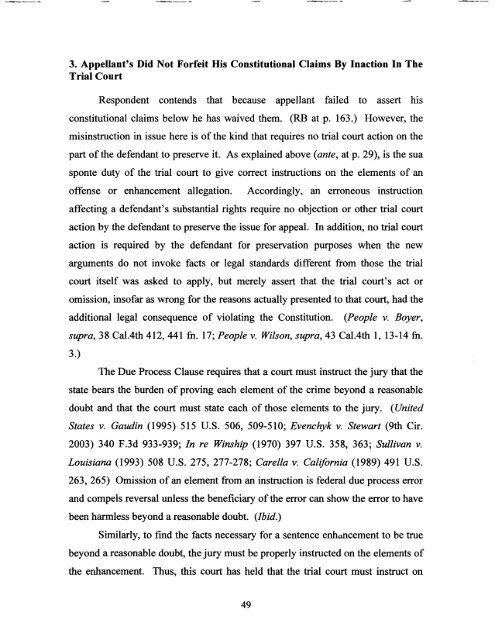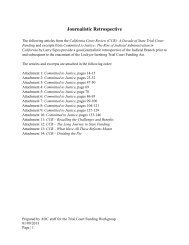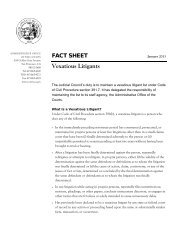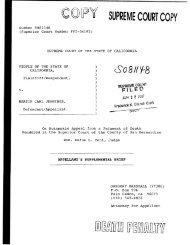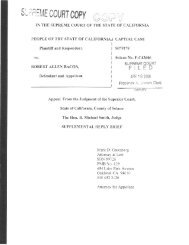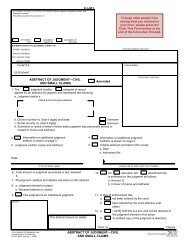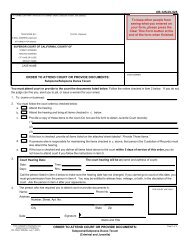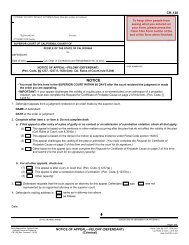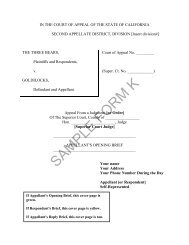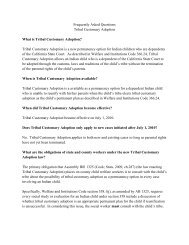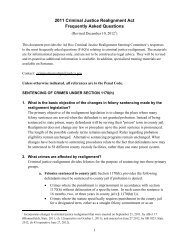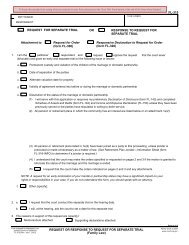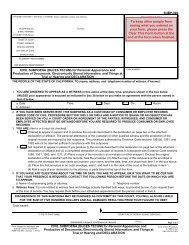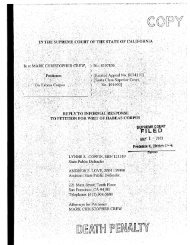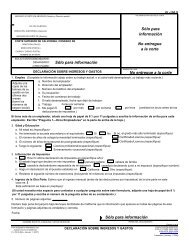Appellant, William Satele, Reply Brief - California Courts - State of ...
Appellant, William Satele, Reply Brief - California Courts - State of ...
Appellant, William Satele, Reply Brief - California Courts - State of ...
Create successful ePaper yourself
Turn your PDF publications into a flip-book with our unique Google optimized e-Paper software.
3. <strong>Appellant</strong>'s Did Not Forfeit His Constitutional Claims By Inaction In The<br />
Trial Court<br />
Respondent contends that because appellant failed to assert his<br />
constitutional claims below he has waived them. (RB at p. 163.) However, the<br />
misinstruction in issue here is <strong>of</strong>the kind that requires no trial court action on the<br />
part <strong>of</strong>the defendant to preserve it. As explained above (ante, at p. 29), is the sua<br />
sponte duty <strong>of</strong> the trial court to give correct instructions on the elements <strong>of</strong> an<br />
<strong>of</strong>fense or enhancement allegation. Accordingly, an erroneous instruction<br />
affecting a defendant's substantial rights require no objection or other trial court<br />
action by the defendant to preserve the issue for appeal. In addition, no trial court<br />
action is required by the defendant for preservation purposes when the new<br />
arguments do not invoke facts or legal standards different from those the trial<br />
court itself was asked to apply, but merely assert that the trial court's act or<br />
omission, ins<strong>of</strong>ar as wrong for the reasons actually presented to that court, had the<br />
additional legal consequence <strong>of</strong> violating the Constitution. (People v. Boyer,<br />
supra, 38 Cal.4th 412,441 fn. 17; People v. Wilson, supra, 43 Cal.4th 1, 13-14 fn.<br />
3.)<br />
The Due Process Clause requires that a court must instruct the jury that the<br />
state bears the burden <strong>of</strong> proving each element <strong>of</strong> the crime beyond a reasonable<br />
doubt and that the court must state each <strong>of</strong> those elements to the jury. (United<br />
<strong>State</strong>s v. Gaudin (1995) 515 U.S. 506, 509-510; Evenchyk v. Stewart (9th Cir.<br />
2003) 340 F.3d 933-939; In re Winship (1970) 397 U.S. 358, 363; Sullivan v.<br />
Louisiana (1993) 508 U.S. 275, 277-278; Carella v. <strong>California</strong> (1989) 491 U.S.<br />
263, 265) Omission <strong>of</strong> an element from an instruction is federal due process error<br />
and compels reversal unless the beneficiary <strong>of</strong>the error can show the error to have<br />
been harmless beyond a reasonable doubt. (Ibid.)<br />
Similarly, to find the facts necessary for a sentence enhancement to be true<br />
beyond a reasonable doubt, the jury must be properly instructed on the elements <strong>of</strong><br />
the enhancement. Thus, this court has held that the trial court must instruct on<br />
49


